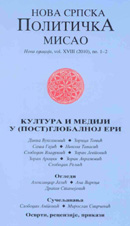| NSPM in English | |||
Wake up, euro zone |
 |
 |
 |
| петак, 21. октобар 2011. | |
|
To achieve this, she wants to reopen the European Union’s treaties. If necessary, she has confided privately, she is ready to rewrite Germany’s constitution to allow a leap in European integration. Leave aside the question of whether such a revolution is sensible or feasible; or the danger that a new treaty may open the way for the joint Eurobonds that Germany resists. The bigger peril is that a rush to create Kerneuropa (“core Europe”) may fracture the EU between 17 “ins” and ten “outs”, potentially damaging the single market on which the prosperity of both groups rests. “It’s a mirage. The Germans are losing their heads,” says one senior diplomat. Any new treaty, especially one that intrudes on national sovereignty, will be nigh impossible to negotiate and ratify quickly. And how would changing the treaties in, say, five years’ time, save the euro from collapsing in the next five months? Mario Monti, a former European commissioner, speaks for many when he says that treaty change could be a “distraction from, or even the destruction of” current efforts to salvage the euro. The near-term measures that need to be approved by the summit are no secret: reduce Greece’s mountainous debt, recapitalise vulnerable banks and create a credible firewall to protect endangered but still-solvent countries like Spain and Italy. For the longer term, to ensure there is no repetition of the crisis, the euro zone is already equipping itself with new tools: a “European semester” requires governments to submit budget outlines to Brussels before the details go to national parliaments; a “six-pack” of new rules allows the European Commission to monitor fiscal and macroeconomic imbalances and demand remedies backed by the threat of “semi-automatic” sanctions; a “Euro-Plus Pact” of the ins and some of the outs is supposed to exert peer pressure for reforms beyond the commission’s remit; a longstanding “Europe 2020” plan promotes growth across the EU as a whole. “What problem are the Germans trying to resolve?” asks one finance minister, “If the six-pack can do the job, there is no need for treaty change. If the six-pack is not sufficient, will any treaty be good enough?” Like many dreams, Mrs Merkel’s is nebulous and contradictory. But fellow leaders know the chancellor is serious about it. And when so many depend on Germany’s purse, what Mrs Merkel wants she gets. This weekend leaders will have to decide whether to postpone debate by agreeing to study whether treaty change is needed or simply start thinking about what should go into it. For some veterans, this could be “the biggest moment in the EU’s history”. European integration will now take place within the euro zone, widening the gap between ins and outs. Pushed by France, the euro zone will formalise summits of its 17 leaders, to be held twice a year after EU meetings at 27. Germany seem to back a Dutch idea to appoint a commissioner responsible for overseeing national budgets. With or without treaty change, the euro zone is being forced to centralise powers. So what of the ten outs? David Owen, a former British foreign secretary, recently co-wrote a proposal for a new “non-Eurogroup”, with separate summits that would be chaired, like euro-zone summits, by Herman Van Rompuy, president of the European Council. This is unlikely to catch on. The outs are divided: Britain and Denmark have formal opt-outs; Sweden has decided to stay out for now; the seven others, apart perhaps from the Czech Republic, are legally bound to join and wish to do so. “The emotion is very different if you are trying to stay away from a woman or trying to get into bed with her,” says one European official. Britain’s prime aim is to avoid entanglement with the euro zone, but Poland’s is to avoid exclusion. Britain is calling the lawyers to set the terms for divorce. It wants safeguards to ensure that, if the 17 talk about issues affecting all EU members—eg, regulation of financial services—the issue is brought to the 27 for discussion. Poland wants to be included in all discussions, and to avoid new obstacles to joining the monetary union. Don’t expect a great British-Polish romance. Over time, the ins and outs seem bound to drift apart. Even with safeguards, and even if the 17 do not vote as a block, habits of co-operation will tell. If the euro zone seeks to improve, say, wage competitiveness, labour ministers may want to meet at 17. More than a “two speed” Europe, this could lead to what Mr Monti calls a “two-belief” Europe. Hitherto European integration has been pushed through economic liberalisation. But these two movements could become decoupled. Those most committed to open markets and structural reform tend to be in the non-euro outer ring; the integrating euro core leans more towards protection of national champions and resistance to further liberalisation. Who are the better Europeans? The euro-zone summit will be vital in trying to stop the market panic. Greater integration of the zone is plainly needed. But the real solution to the debt crisis is economic growth. With public finances stretched, the best hope lies in the unused potential of the single market, opening up the EU to competition in services, and spending more of the EU budget on research not farm subsidies. Yet that discussion will not take place at the euro-zone summit but at the earlier gathering at 27, where it is likely to be ignored. That would be a mistake. The exclusivists in the euro zone should wake up from their reverie. |
Од истог аутора
Остали чланци у рубрици
- Playing With Fire in Ukraine
- Kosovo as a res extra commercium and the alchemy of colonization
- The Balkans XX years after NATO aggression: the case of the Republic of Srpska – past, present and future
- Из архиве - Remarks Before the Foreign Affairs Committee of the European Parliament
- Dysfunction in the Balkans - Can the Post-Yugoslav Settlement Survive?
- Serbia’s latest would-be savior is a modernizer, a strongman - or both
- Why the Ukraine Crisis Is the West’s Fault
- The Ghosts of World War I Circle over Ukraine
- Nato's action plan in Ukraine is right out of Dr Strangelove
- Why Yanukovych Said No to Europe

.jpg)








.jpg) ANGELA MERKEL is telling the world not to expect the October 23rd summit to resolve the euro crisis at a stroke; such “dreams”, says the chancellor’s spokesman, cannot be fulfilled. She has a different dream: to remake the euro zone in Germany’s image, with tough rules to restrict government spending and legal powers to intervene in national policies if countries go astray.
ANGELA MERKEL is telling the world not to expect the October 23rd summit to resolve the euro crisis at a stroke; such “dreams”, says the chancellor’s spokesman, cannot be fulfilled. She has a different dream: to remake the euro zone in Germany’s image, with tough rules to restrict government spending and legal powers to intervene in national policies if countries go astray.











